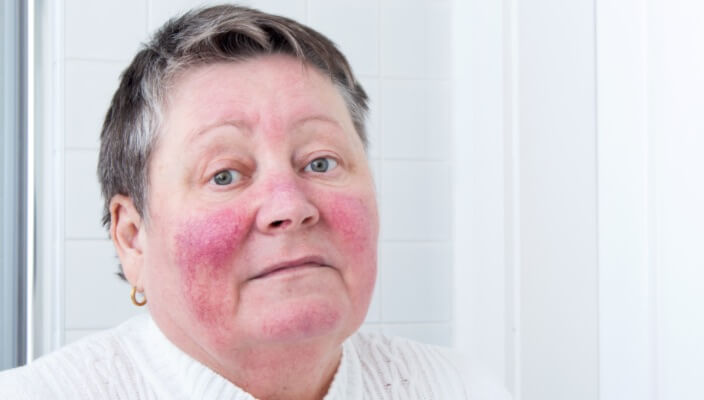Managing Eczema Flare-Ups: Tips for Soothing Irritated Skin
Unlock comfort and restore tranquility to troubled skin
 Eczema, a chronic skin condition characterized by inflammation and intense itching, can be challenging to manage, especially during flare-ups. Understanding effective strategies for soothing irritated skin is crucial for individuals navigating the ups and downs of eczema. Here, we explore practical tips to help you find relief and regain control over your skin's well-being.
Eczema, a chronic skin condition characterized by inflammation and intense itching, can be challenging to manage, especially during flare-ups. Understanding effective strategies for soothing irritated skin is crucial for individuals navigating the ups and downs of eczema. Here, we explore practical tips to help you find relief and regain control over your skin's well-being.
Nourish your skin, empower your well-being. A mindful approach to eczema management is the key to comfort and control.
Gentle Cleansing is Key
When dealing with eczema flare-ups, it's essential to choose mild and fragrance-free cleansers. Harsh soaps and scented products can exacerbate irritation. Opt for hypoallergenic, soap-free cleansers to gently cleanse the skin without stripping away natural oils. Short, lukewarm showers are preferable to hot baths, as prolonged exposure to hot water can contribute to dryness.
Hydrate, Hydrate, Hydrate
Moisturizing is a cornerstone of eczema management. Apply a rich, emollient moisturizer immediately after bathing to lock in moisture. Look for products containing ingredients like ceramides, hyaluronic acid, or shea butter, which help strengthen the skin barrier and provide long-lasting hydration. Keep a travel-sized moisturizer with you to reapply throughout the day, especially in areas prone to flare-ups.
Choose Eczema-Friendly Clothing
Cotton and other breathable fabrics are eczema-friendly choices. Avoid rough or irritating materials like wool, as they can exacerbate itching and discomfort. During flare-ups, opt for loose-fitting, soft clothing to minimize friction on sensitive skin. Consider washing new clothes before wearing them to remove any potential irritants.
Mindful Skincare Product Selection
Selecting skincare products with care is vital for managing eczema-prone skin. Avoid products containing alcohol, fragrances, and harsh chemicals, as these can trigger flare-ups. Instead, opt for hypoallergenic and fragrance-free options specifically designed for sensitive skin. Patch testing new products before widespread use can help identify potential irritants.
Cool Compresses for Itch Relief
During eczema flare-ups, cool compresses can provide immediate relief from itching. Apply a clean, damp cloth or a cold compress to the affected areas for short periods. This can help reduce inflammation and soothe irritated skin. Be cautious with the temperature, ensuring it is cool but not too cold to avoid further irritation.
Prescription Medications and Consultation
In cases of severe eczema flare-ups, prescription medications may be necessary. Topical corticosteroids, calcineurin inhibitors, or other anti-inflammatory medications prescribed by a dermatologist can provide targeted relief. Consultation with a dermatology provder is crucial to determine the most appropriate treatment plan for your specific condition.
Mind-Body Practices for Stress Reduction
Eczema flare-ups can be influenced by stress, making stress reduction practices valuable in managing symptoms. Incorporate mindfulness techniques, such as deep breathing, meditation, or yoga, into your routine. These practices can help calm the nervous system and contribute to overall well-being.
From our QualDerm Family of Brands: Eczema Symptoms
Partner with Us for Eczema Management
Managing eczema flare-ups requires a multifaceted approach that includes gentle skincare, hydration, and mindful lifestyle practices. By incorporating these practical tips into your daily routine, you can soothe irritated skin, minimize discomfort, and regain control over your skin's health. Remember, individual responses to eczema management strategies may vary, and consultation with a healthcare professional is recommended for personalized guidance tailored to your unique needs.
Related Blog Posts

- Chronic Skin Conditions
Rosacea, a chronic skin condition characterized by redness, visible blood vessels, and sometimes acne-like bumps, can be an enigmatic challenge for those who experience it.
Read More
- General Dermatology
- Skin Care
- Chronic Skin Conditions
Hormonal acne can be a pesky skin problem for many. The only way to address this is by finding a hormonal acne treatment that works for you and your unique skin.
Read More
- Skin Cancer
- General Dermatology
- Chronic Skin Conditions
Learn more about the most common types of skin lesions we see and how our dermatologists remove them.
Read More
